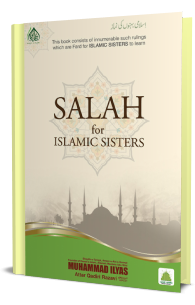
Parable
A pious predecessor has stated: At first I was a big sinner. I once saw an orphan and treated him with such honour and love that perhaps even a father does not do so to his son. When I fell asleep at night, I dreamt that Angels were dragging me towards Hell in a very bad manner when all of a sudden, that orphan came in between and said, ‘leave him, so that I speak to my Rab عَزَّوَجَلَّ about him’, but the Angels refused. Then a voice was heard: ‘Leave him! I have forgiven him due to the mercy he showed to this orphan.’ I woke up as soon as the dream ended. From that day onwards, I treat orphans with great dignity. (Mukashafa-tul-Quloob, pp. 231)
We learn from this parable that showing good behaviour towards orphans can improve the afterlife in addition to the worldly life.
Who is an orphan?
Every Na-Baligh[1] boy or girl whose father has passed away is an orphan. (Durr-e-Mukhtar Ma’ Radd-ul-Muhtar, vol. 10, pp. 416) There is no doubt that as long as the father is alive, he is a strong protector, an excellent guardian, a kind teacher and a shady tree for his children. But as soon as he passes away, it is as if the shelter for protection is removed from the children’s head. Apparently, the whole house becomes helpless and in such condition, some close ones also start drifting away. Some relatives turn away and those who remain connected begin to despise the family. If the father leaves some estate, some relatives keep a strong eye on it and as soon as they get a chance, they deprive orphans of their right, destroying their own Hereafter.
Orphans and Islamic teachings
To correct the above mindset, Islam has encouraged us to treat orphans well. This golden teaching of treating orphans with kindness is a definite way of ‘improving human life’ and making every individual an honourable person of a society. For this very reason, in the Holy Qur’an, our attention has been directed to the rights of orphans at numerous places. In one blessed Quranic verse, after ordering us to worship Him and to refrain from polytheism, Allah عَزَّوَجَلَّ has ordered us to treat people with kindness and amongst them, orphans have been mentioned at the third place after parents and relatives. (Part. 5, Surah An-Nisa, Ayah 36) The blessed character of the Holy Prophet صَلَّى اللّٰهُ عَلَيْهِ وَاٰلِهٖ وَسَلَّم is the best role model for us when it comes to treating and looking after orphans well. The Holy Prophet صَلَّى اللّٰهُ عَلَيْهِ وَاٰلِهٖ وَسَلَّم not only helped orphans and the helpless himself but has also advised all of his followers to do so.
2 sayings of the Holy prophet صَلَّى اللّٰەُ عَلَيْهِ وَاٰلِهٖ وَسَلَّم in relation to treating orphans with kindness
1 ‘The guardian of an orphan and I will be in Paradise like this.’ After saying it, he صَلَّى اللّٰهُ عَلَيْهِ وَاٰلِهٖ وَسَلَّم indicated with his both (index and middle) fingers. (Bukhari, vol. 4, pp. 102, Hadees 6005)
2 The best house amongst Muslims’ houses is that house in which there is an orphan and he is treated with kindness; and the worst house amongst Muslims’ houses is that house in which there is an orphan and he is treated with unkindness. (Ibn-e-Majah, vol. 4, pp. 193, Hadees 3679)
Remember! Today, if we try to reduce the trouble and pain of orphans, and try to remove darkness from their lives and put a smile on their sad faces, Allah عَزَّوَجَلَّ will brighten our worldly life and the afterlife. May Allah عَزَّوَجَلَّ grant us Taufeeq of becoming a support for orphans.
صَلَّى اللّٰهُ عَلَيۡهِ وَاٰلِهٖ وَسَلَّماٰمِيۡن بِجَاهِ النَّبِيِّ الۡاَمِيۡن
[1] A child who has not yet reached puberty

















Comments